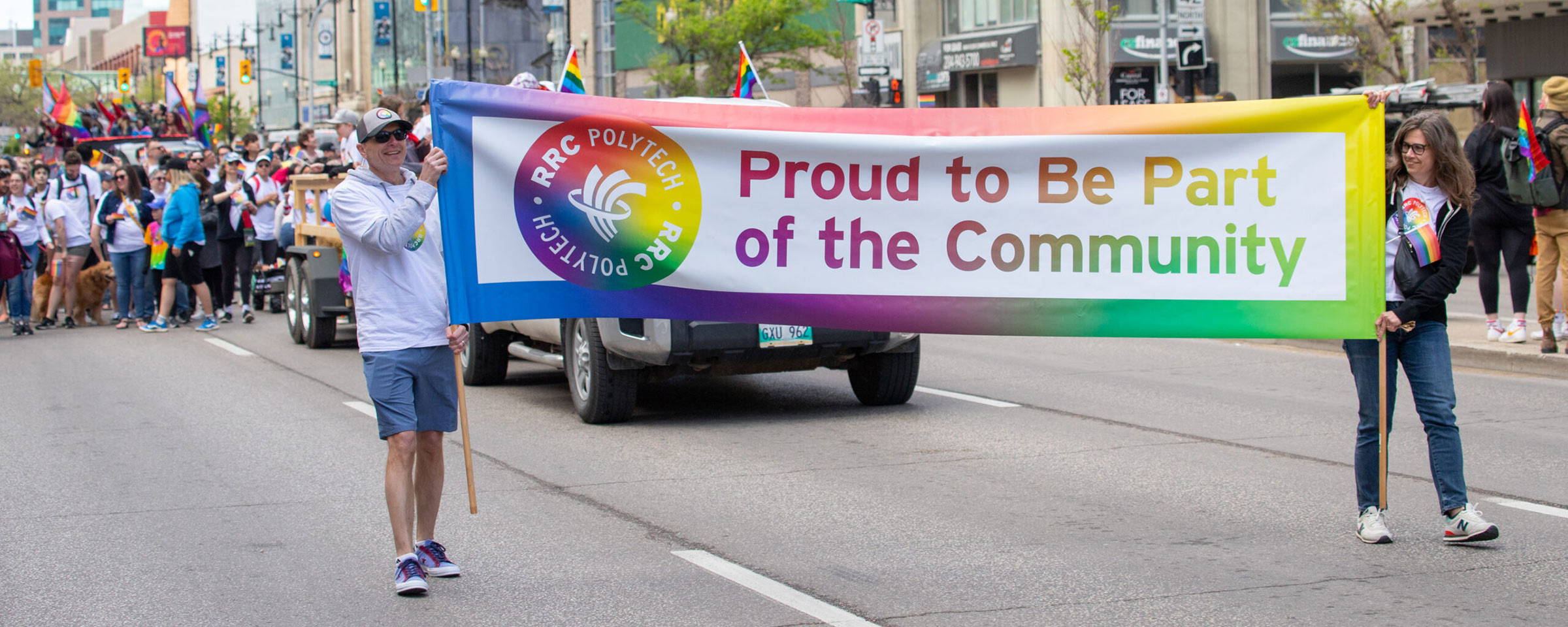Language Changes as We Change: Equity Deserving
Words are powerful, shaping the way we think and experience day-to-day life. At RRC Polytech, part of our commitment to equity, diversity and inclusion (EDI) is evolving our knowledge and the language we use.
You may have noticed the shift from the term “equity-seeking” to “equity-deserving.” This change was informed through consultations with internal EDI working groups, and aligns with language used by other post-secondary institutions and the Canadian Centre for Diversity and Inclusion.
When we talk about equity-seeking, it sets a framework for people needing to ask for their humanity to be recognized. Historically, these groups have been denied fair and equitable access to resources. To be “seeking” as opposed to “deserving” puts people in a difficult place – asking for equitable treatment.
Because words matter and are fundamental to how we think and see the world, changing the words we use creates a more inclusive culture where everyone is empowered. By moving to the term equity-deserving, we are recognizing everyone’s right to equitable treatment.
RRC Polytech recognizes the following equity-deserving groups:
- Women
- Indigenous Peoples
- Persons with disabilities
- Racialized persons
- Persons of the 2SLGBTQIA+ community
As part of our commitment to an inclusive and diverse community, we are asking all employees and students to self-identify as belonging to one or more of the equity-deserving groups.
Everyone is encouraged to complete the survey, even if you do not identify with the five equity-deserving groups or have previously self-identified. In order to get the most accurate picture of our College community and inform future EDI initiatives, programs and policies, it’s beneficial for everyone to make their voices heard and representation know by self-identifying.

